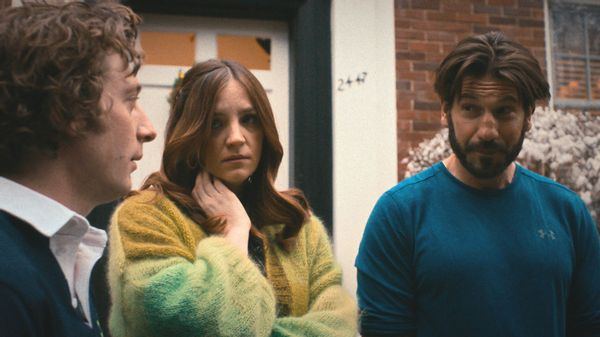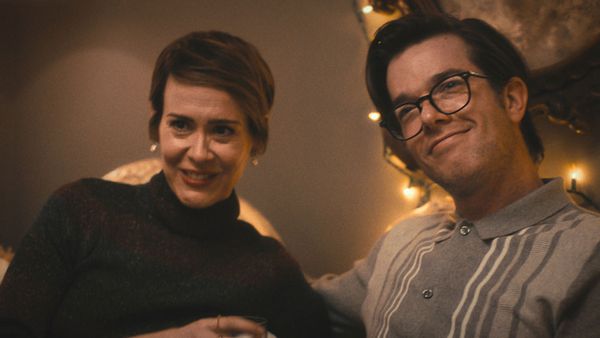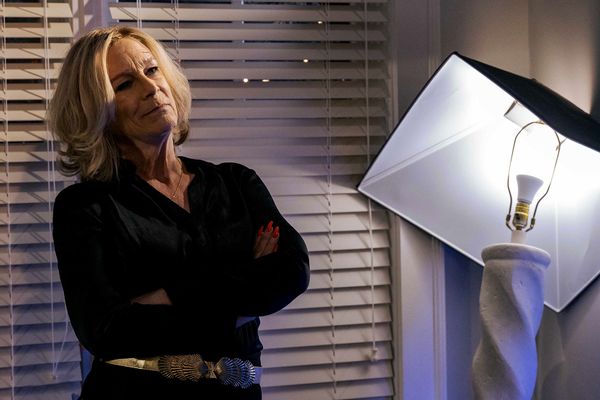
When director John Hughes released "Uncle Buck," a 1989 comedy starring John Candy as the titular character, it was met with mixed reviews. The story follows Buck as he gets called out from the city to the Chicago suburbs to care for his brother's three kids — played by Jean Louisa Kelly, Gaby Hoffman and Macaulay Culkin — while their parents are out of town. Like most of Candy's characters, Buck is big-hearted and pretty lovable, but Hughes, who also wrote the film, gave him a bit of an edge that unnerved some viewers.
He's a hard-drinker, weighed down by horse-racing debt and the seeming inability to commit to a job or to Chanice, his long-term girlfriend (Amy Madigan). "The movie is filled with good intentions and good feelings, but they seem to conceal another side of Uncle Buck," wrote critic Roger Ebert at the time. "A side that makes the movie feel creepy and subtly unwholesome."
He continued, writing: "Hughes is usually the master of the right note, the right line of dialogue, and this time there's an uncomfortable undercurrent in the material."
But in rewatching the movie three and a half decades later, Buck, with his rough-around-the-edges appeal, isn't really what is disconcerting about the film, which has become something of a cult classic. Like much of Hughes' work, the story of "Uncle Buck" was propelled by the inherent tension contained in the picturesque neighborhood where it was set. Yes, the houses are beautiful, but it takes Buck just a few days (and a run-in with a drunk party clown and Bug, his niece's skeezy boyfriend) to realize that the kids are not alright.
Over and over again, Hughes demonstrated how isolation and family dysfunction can not just hide, but also thrive in the quiet darkness of the suburbs — which is why it it was no surprise to see that this season of FX's "The Bear" took some cues from the director in its own exploration of the neighborhoods bounding Chicago.
Some of the nods are a little more obvious, like in the case of the fifth episode of the second season, "Pop." In it, Carmy (Jeremy Allen White) and his crush, Claire (Molly Gordon) head up to Winnetka, a northern Chicago suburb, to drop off a piece of mail. While in the area, Claire invites Carmy to a party a friend of hers is having.
The needle drops, and "Pretty in Pink" by the Psychedelic Furs (produced for the 1986 film of the same name, which Hughes wrote) begins to play as Claire leads Carm into her friend's kegger. The rest of the episode feels a bit like a coming-of-age movie in the best of ways; it's evident that, despite Carmy's real-world restaurant chops, when it comes to personal relationships, he's experienced a bit of arrested development. Tonight is about overcoming some of his shyness.
The party gets rowdier and rowdier around the pair — in a way that nods to the carnage left behind by the drunk party guests in "Sixteen Candles" — who ultimately decide to head back to the city and towards a fade-to-black first kiss as "Can't Hardly Wait" by The Replacements (first released in 1985) plays. But before they do that, Carmy compliments how Claire handled her wasted, heartbroken friend. "In college, everyone used to come back to my house after parties, and I think I got really good at managing sad, drunk people," Claire says.
"Yeah, I know that feeling," Carmy says.
There's a beat of silence before Claire carefully replies: "I know you do."
The next episode, "Fishes" plunges viewers into the exact dysfunction to which Carmy and Claire are alluding. Set on Christmas Eve years prior to the present season, we learn that Carmy's mom, Diana (played with ferocity by Jamie Lee Curtis), is a narcissistic, emotionally abusive alcoholic whose moods and unmedicated outbursts dictate family holidays.

Her three kids have their own way of dealing: Carmy got out of the country for work and, now that he's back stateside, spends most of his time back at home dissociating; his sister, Sugar (Abby Elliot) constantly checks in on her mother, who, in turn, lashes out at her; meanwhile, their brother Mikey (Jon Bernthal) now struggles with addiction himself.
"The Bear" creator Christopher Storer was raised in Park Ridge, a Chicago suburb that borders the northwest side of the city, and, in this episode in particular, really uses that familiar, serene landscape surrounding the Berzattos to magnify the chaos inside their home. From the outside, it's a beautiful house on a beautiful street decorated for a beautiful dinner.
Inside, the Berzatto kids are bracing for another tumultuous holiday. Little do they know that this one will end with Diana ramming her car through the front door.
Addiction and abuse are recurring themes in Hughes' films. In "Pretty in Pink," Harry Dean Stanton plays Jack Walsh, Andie's (Molly Ringwald) father who struggles with alcoholism and depression after his wife walks out on the family. Cameron (Alan Ruck) insinuates in "Ferris Bueller's Day Off" that his father is emotionally, if not physically, abusive. And in "The Breakfast Club," John Bender describes his dad as an alcoholic who beats him and calls him a " stupid, worthless, no good, goddamn, freeloading son of a b***h."

The holiday chaos isn't just coming from Carmy's mom, though. His brother and cousins (and John Mulaney, who is also originally from the 'burbs, playing a weird in-law) stoke tensions when they tell Carm that they ran into Claire and passive-aggressively put in a good word for him.
It's not lost on me that Claire was also the name of Molly Ringwald's character in "The Breakfast Club." And like Ringwalsd's character, Claire of "The Bear" is positioned as something of a princess, too. She's smart, she's beautiful, she volunteers with sick kids and she's on her way to becoming a doctor. But when the guys are describing how she's "grown up" to Carm, they're all a little gross about it, especially Mikey and his cousin, Richie (Ebon Moss-Bacharach).
Mikey and Richie both have that distinct John Bender "f**k you" energy that does feel undeniably Chicago in many ways. Yet as much as they both want to present themselves as tough-as-nails outsiders who don't need validation, this season showed how much they simultaneously crave acceptance and success. Those seemingly dichotomous desires often erupt as bad behavior, like the kind that landed Bender in detention — and Richie out on the sidewalk in front of an Alinea-esque restaurant getting chewed out about his poor work ethic as a fork polisher.
By the way, that lecture very much sounded like what Ringwald's Claire said to Bender: "See, you're afraid that they won't take you, you don't belong, so you have to just dump all over it."
In the end, Richie ends up being the character who grows the most this season after he realizes that the only thing stopping him from belonging is his own fear of failure, something Mikey didn't get the chance to do. It's a satisfying turn and one that makes me think that John Bender could've really found himself in a decent restaurant kitchen.
During "friends and family" night at Carmy's new restaurant, which is when Richie really steps up, Diana comes into the city from the suburbs; Sugar and Carmy don't see her because she opts not to come inside. She doesn't know how to say she's sorry. Before she goes, however, Sugar's husband Petey lets it slip that the couple is expecting their first child.

Some of the shots of the couple's home were actually filmed at a real home in Evanston, another suburb north of the city. Gilbert Morales, the show's assistant location manager, told the local paper that while the series doesn't mention specifically where Sugar lives "it was meant to be outside the city of Chicago."
It's a subtle choice, but one that reiterates an important point: Before either of them can start a new chapter, the Berzatto kids will first have to deal with the trauma they experienced in their childhood home, and it looks a lot like staring into the dark heart of John Hughes' suburbs.







